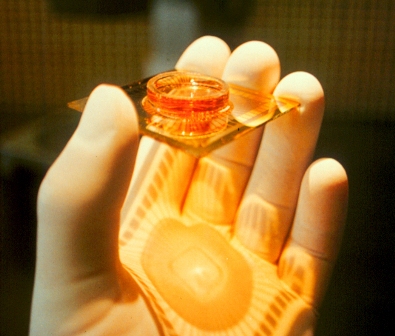Alright I'm going to say "no" on this one.
I mean I've thought about the possibility of there being some kind of
anima mundi that plays some role in the mind but I'm not going to assume such an epiphenomenal intrusion for more or less the same reason that I'm not going to assume there's an invisible dragon in the garage, as per Carl Sagan:[INDENT]Suppose (I'm following a group therapy approach by the psychologist Richard Franklin) I seriously make such an assertion to you. Surely you'd want to check it out, see for yourself. There have been innumerable stories of dragons over the centuries, but no real evidence. What an opportunity!
"Show me," you say. I lead you to my garage. You look inside and see a ladder, empty paint cans, an old tricycle -- but no dragon.
"Where's the dragon?" you ask.
"Oh, she's right here," I reply, waving vaguely. "I neglected to mention that she's an invisible dragon."
You propose spreading flour on the floor of the garage to capture the dragon's footprints.
"Good idea," I say, "but this dragon floats in the air."
Then you'll use an infrared sensor to detect the invisible fire.
"Good idea, but the invisible fire is also heatless."
You'll spray-paint the dragon and make her visible.
"Good idea, but she's an incorporeal dragon and the paint won't stick." And so on. I counter every physical test you propose with a special explanation of why it won't work.
Now, what's the difference between an invisible, incorporeal, floating dragon who spits heatless fire and no dragon at all? If there's no way to disprove my contention, no conceivable experiment that would count against it, what does it mean to say that my dragon exists? Your inability to invalidate my hypothesis is not at all the same thing as proving it true. Claims that cannot be tested, assertions immune to disproof are veridically worthless, whatever value they may have in inspiring us or in exciting our sense of wonder. What I'm asking you to do comes down to believing, in the absence of evidence, on my say-so. The only thing you've really learned from my insistence that there's a dragon in my garage is that something funny is going on inside my head. You'd wonder, if no physical tests apply, what convinced me. The possibility that it was a dream or a hallucination would certainly enter your mind. But then, why am I taking it so seriously? Maybe I need help. At the least, maybe I've seriously underestimated human fallibility. Imagine that, despite none of the tests being successful, you wish to be scrupulously open-minded. So you don't outright reject the notion that there's a fire-breathing dragon in my garage. You merely put it on hold. Present evidence is strongly against it, but if a new body of data emerge you're prepared to examine it and see if it convinces you. Surely it's unfair of me to be offended at not being believed; or to criticize you for being stodgy and unimaginative -- merely because you rendered the Scottish verdict of "not proved."
Imagine that things had gone otherwise. The dragon is invisible, all right, but footprints are being made in the flour as you watch. Your infrared detector reads off-scale. The spray paint reveals a jagged crest bobbing in the air before you. No matter how skeptical you might have been about the existence of dragons -- to say nothing about invisible ones -- you must now acknowledge that there's something here, and that in a preliminary way it's consistent with an invisible, fire-breathing dragon.[/INDENT]So, without resorting to idle metaphysical speculation, and instead trying to make out the
gestalt that all the scientific data we have point to, I am going to assume that the consciousness is an emergent phenomenon of the brain.
This has some interesting consequences. It leads me to believe live that consciousness exists on a continuum, because no one neuron is reponsible for the whole experience. So an array of disembodied rat neurons like this one:

being used as a kind of living computer has some kind of conscious experience, though very diminished compared to that of a full-fledged rat.
I am also led to believe that an artificial brain built along very similar lines as our own will exhibit consciousness, and that neuromimetic devices could restore and even enhance various brain functions. (In fact, they are even
now.)
Two interesting standing questions for me are: "If the human brain were outfitted with the ability to sense infrared or use echolocation, how would these things be perceived?" and "What else could exhibit consciousness?" e.g., an artificial brain based on belief networks or something similar.
(Oh and one more thing: the US medical industry has nothing to do with this thread. Let's get that out of the way now.)



...
...
